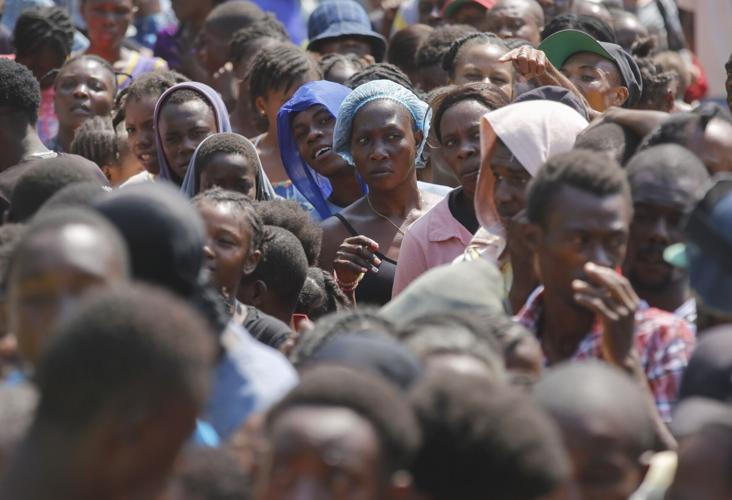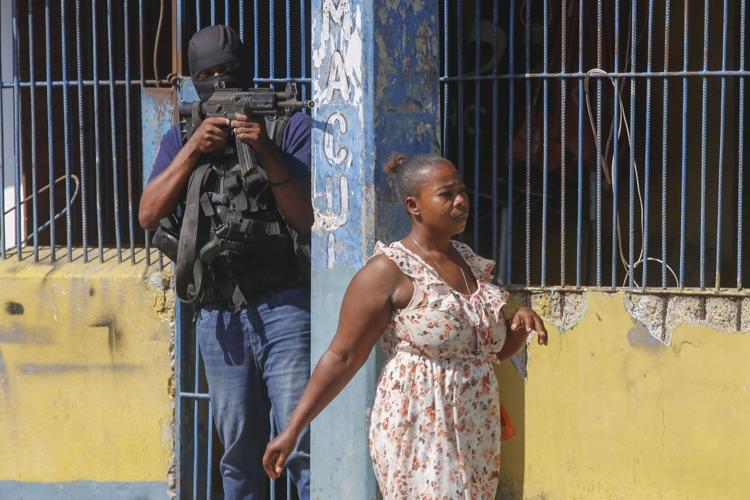LOUISVILLE, Ky. (WDRB) -- Nearly 24,000 people have been deported from Haiti in 2024 as gangs torch police stations, force the closure of the island's two international airports and storm its two biggest prisons, freeing more than 4,000 inmates.
Video of the violence and chaos has gone worldwide, and it leaves some native Haitians in Louisville worried for their relatives back home.
Wenley Moise, a case worker for Catholic Charities in Louisville, moved to town a year ago from Haiti, where most of his family and friends remain.
"Things were not OK a long time ago," Moise said Wednesday. "It got worse day by day, so now it's worse than it was before."
These days in Louisville, Moise works every day with other Haitians who are concerned about their loved ones there.
"Being here in a safe place, and they can't do anything for their families," he said. "That's really hard for them."
Scores of people have been killed, and the U.N. says more than 17,000 Haitians have been left homeless by the recent attacks. The U.N. food agency’s director in Haiti, Jean-Martin Bauer, said 4 million people face "acute food insecurity" and 1 million of them are one step away from famine.
"There's always been some kind of unrest all the way back," said Roman Barbosa, who owns food catering company Haitian Exotica in Louisville. "There has always been some kind of civil unrest. There has always been something going on with the government and the people of Haiti."
A charter flight carrying more than 30 U.S. citizens fleeing Haiti landed Sunday in Miami, U.S. State Department officials said, after the U.S. Embassy in Port-au-Prince earlier this month urged citizens to leave "as soon as possible."
The U.S. military flew in additional forces earlier this month to bolster security at the embassy, which is in a neighborhood largely controlled by gangs.
"According to a lot of Haitians, they still have hope," Moise said. "They still have hope that things will not stay like it is right now."
Barbosa keeps in touch with family on the island and knows just how tough it's gotten there.
"If you are on the street at a certain time, it is not just you are going to get a penalization," Barbosa said Wednesday. "You're going to get kidnapped. God forbid, the worst is going to go on with you.
"The farmers can't even get food to the markets to help anyone. And if anyone sends help, the gangs are getting that food. You can't give it to the kids. Yu can't get it to the hospitals, the schools."
Catholic Charities said it works with a few dozen Haitians a month to get them resources once they legally come to America. And because the turmoil has been going on for years, there’s now a Haitian immigration process to apply to come here. But that has been taking more time as the situation worsens.
"It's a deteriorating situation," said Colin Triplett, director of intercultural services at Catholic Charities. "There has been a lot of lawlessness in the past, so that has encouraged a lot of people to come to the United States."
Copyright 2024 WDRB Media. All Rights Reserved.















